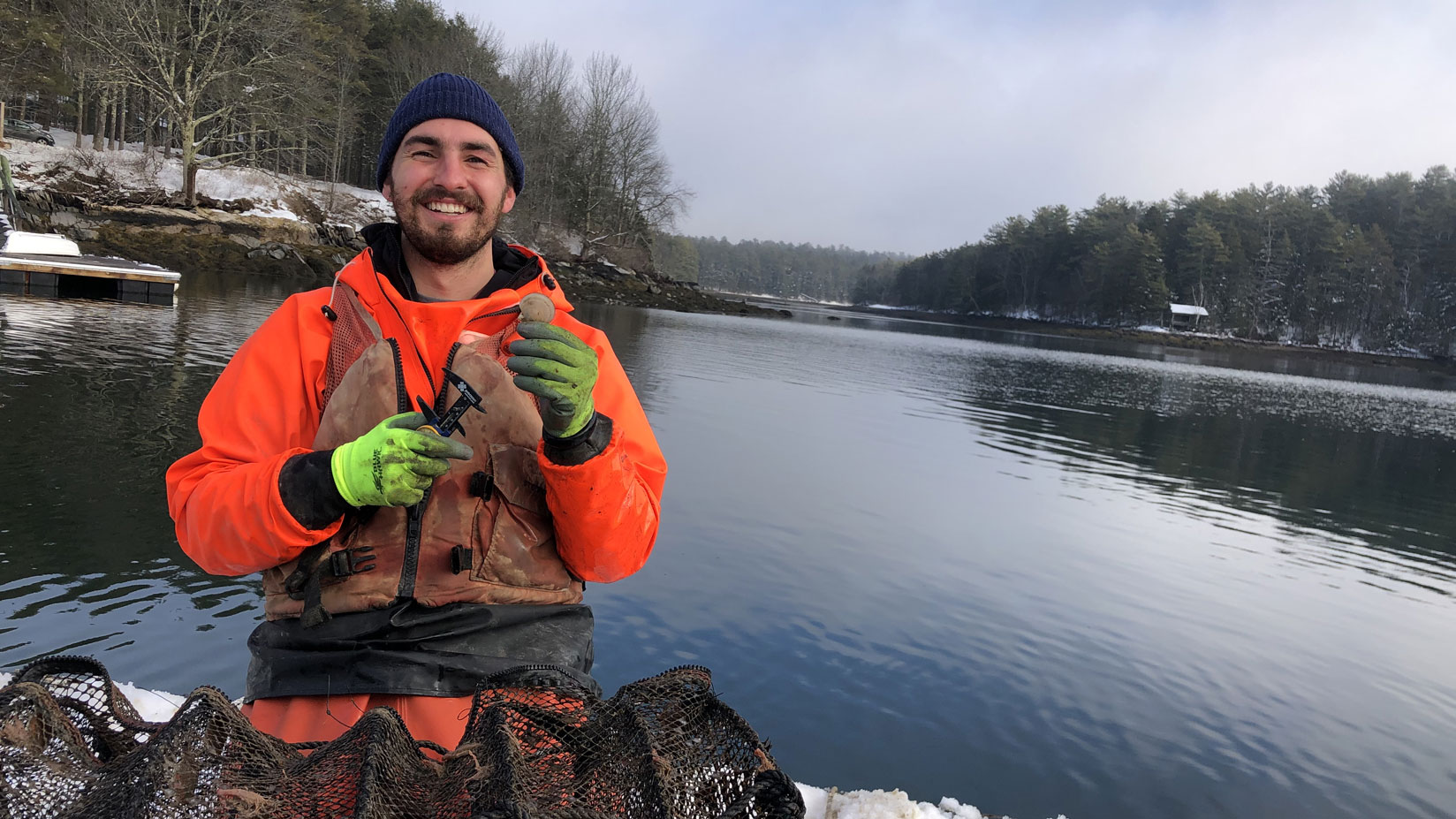
Darling Marine Center’s Tom Kiffney helps potential aquaculturists choose the best site for their farm
Tom Kiffney is a marine science Ph.D. student based at the Darling Marine Center. His Maine Space Grant Consortium (MSGC) project focuses on how to help potential aquaculturists choose the best site for their farm. The goal is to reduce the site selection risk for oyster and other shellfish farmers by using high-resolution satellite products of sea surface temperature and chlorophyll, a proxy for shellfish food, along the coast of Maine to help identify metrics for farm locations.
Farming oysters and shellfish is a sustainable and growing industry in Maine, but choosing a location can be hard. Using the high-resolution satellite products and data collected from them can make it easier for aquaculturists to locate viable farms.
“This data can then be coupled with models that can simulate shellfish growth with temperature and food as inputs. The final products could potentially identify helpful metrics such as time to market at the scale of an actual farm in any location a farmer is considering,” says Kiffney.
Kiffney’s project is done in collaboration with graduate students Gabe Hesketh and Binbin Jiang, and UMaine faculty member Emmanuel Boss. After receiving the MSGC fellowship, Kiffney dove into the methods to process these satellite images and learned the best practices to derive products like temperature and food sources to validate data.
Kiffney was introduced to aquaculture as a summer intern at the Darling Marine Center on the Damariscotta River, a hub of aquaculture in Maine. Part of his internship involved collecting water samples from the river to confirm high-resolution satellite data. Before coming to UMaine, he worked in hatcheries and spent time researching human pathogens in oysters in North Carolina. He returned to the Darling Marine Center to complete his Ph.D. in 2019.
Beyond graduate school, the Portland, Maine native hopes to continue researching questions about how aquaculture and organisms interact with the environment. “I hope to use the skills I am currently developing to produce research that can help inform management and the aquaculture industry,” says Kiffney.
Through his MSGC fellowship, Kiffney has learned how to better collect and process data. While looking at temperature and other factors used to determine the best locations for aquaculture farms, he has derived products to analyze these factors and has designed experiments to validate the output of the satellite growth model, which was used throughout his fellowship.
Kiffney presented at the UMaine Student Symposium 2021 with Gabe Hesketh and Binbin Jiang. Kiffney was advised by Damian Brady and collaborated closely with Emmanuel Boss. Their project, “Aquaculture Site Selection Through Dynamic Energy Budget Models Coupled With High-resolution Satellite Products”, competed in the Natural Sciences Category. Hesketh and Jiang, students under Emmanuel Boss, processed the satellite imagery, while Kiffney collected validation data for the satellites and ran models on them.
Contact: research@umaine.edu
Written by Ali Tobey
